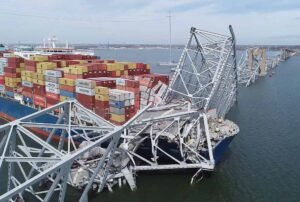December 8, 2011; Source: The Register-Guard | When the nonprofit Environmental Law Alliance Worldwide (E-LAW) of Eugene, Oregon weighed in as a “friend of the court” in an Ecuadoran lawsuit, they probably didn’t expect to be subpoenaed by Chevron in the United States. Their only role had been to provide a written brief to the Ecuadoran court explaining how similar class-action suits regarding compensation for damages related to environmental contamination had been handled by courts around the world. But they were subsequently summoned to appear in U.S. court for a day, which required hundreds of hours of preparatory research. After the court hearing, Chevron found no evidence of wrongdoing and withdrew its demand for further information from E-LAW.
Last week, a U.S. District Court judge ruled that Chevron’s actions were in part intended to “harass” E-LAW, and that the oil company made “unduly burdensome” demands for information from the small nonprofit. As a result, Chevron has been ordered to pay E-LAW $32,945 as compensation for its time.
Sign up for our free newsletters
Subscribe to NPQ's newsletters to have our top stories delivered directly to your inbox.
By signing up, you agree to our privacy policy and terms of use, and to receive messages from NPQ and our partners.
Chevron also faces, and is appealing, a much bigger bill for $18 billion ordered by an Ecuadoran court to compensate residents of Amazon rain forest communities harmed by contamination from an oil drilling operation conducted there in the 1970s and 1980s by Chevron subsidiary Texaco. The legal wrangling over the $18 billion judgment is likely to continue for years, in courtrooms in the United States and Ecuador, and in an international arbitration tribunal in The Hague, the Netherlands.
E-LAW’s Executive Director Bern Johnson observes that because of the nature of its work, “sometimes [powerful corporations] are going to come after us. A lot of our partners around the world have been put in jail and threatened. We understand that comes with the territory.” But E-LAW’s twelve-person team (many of whom work part time) is undoubtedly feeling a little more empowered by the court’s decision—a ruling that has turned the tables on one deep-pocketed adversary.—Kathi Jaworski












